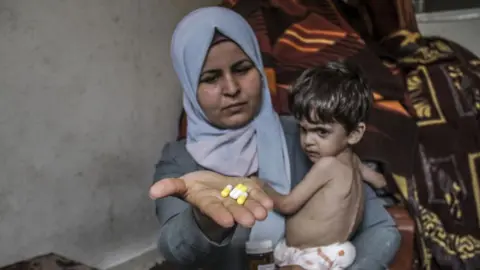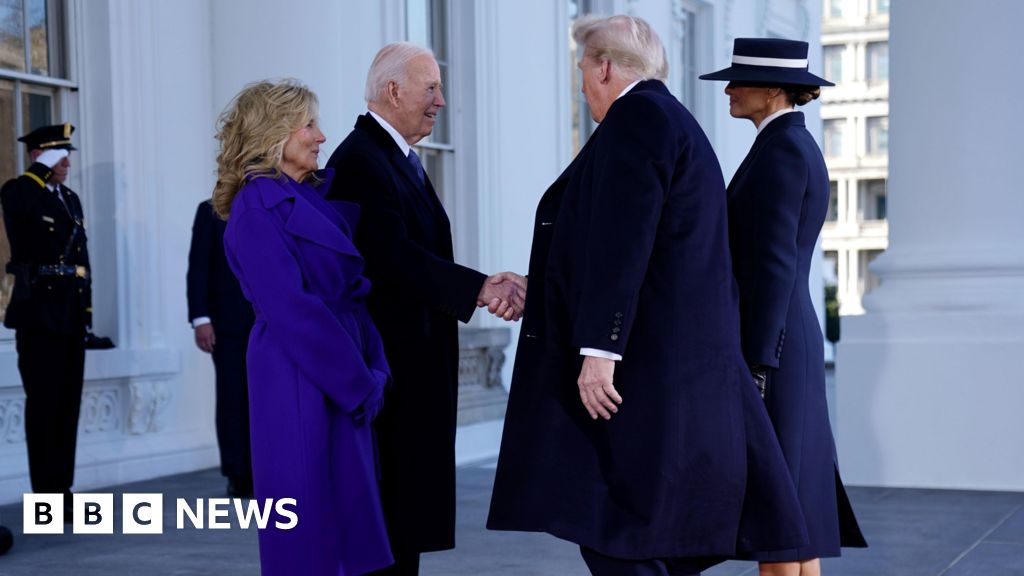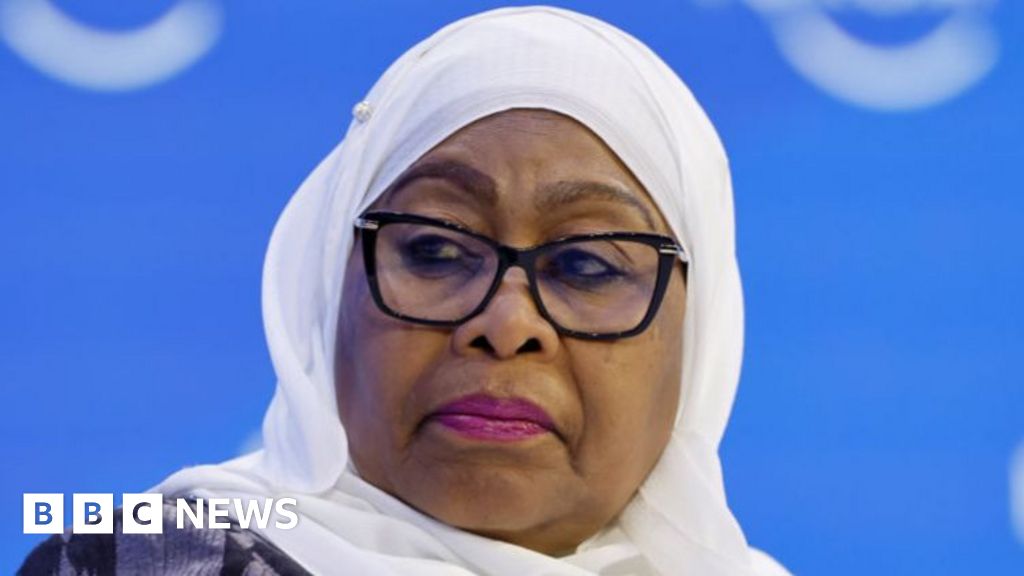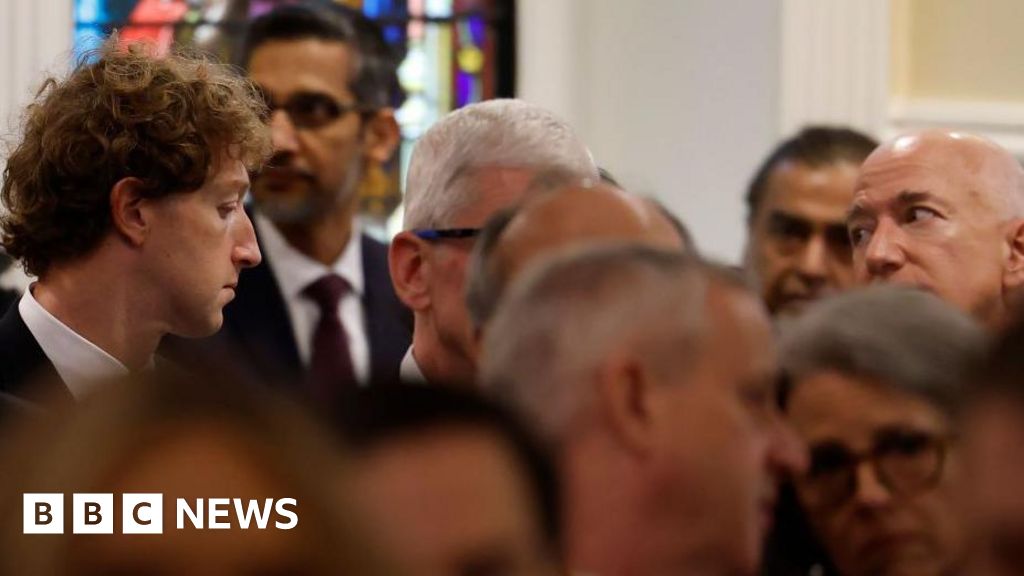ARTICLE AD BOX
15 minutes ago
By Robert Greenall, BBC News
UNICEF's James Elder says Gaza a 'horror show' for children
The UN children's agency Unicef has told the BBC a convoy carrying aid was denied entry to northern Gaza, despite having all the necessary documents, adding that this is a common occurrence.
Unicef spokesman James Elder, who was on a lorry in the convoy, also said that while waiting at a checkpoint he witnessed the fatal shooting of two Gazan fishermen.
The Israel Defense Forces responded that they and Cogat, the body that coordinates Israeli government policy towards civilians in Gaza, facilitated the entry of aid.
Describing levels of despair in Gaza, Mr Elder said people had told him they would be "happy if there is an air strike" on their homes in the night, to end their suffering.

 Getty Images
Getty Images
Unicef says it is seeing increasing malnutrition among children in Gaza
In an interview with the BBC's Today programme, Mr Elder said: “They’re so despairing, they’re so broken, they’ve lost so many family members, they have nothing left.”
He said the areas of Gaza being denied aid were suffering from levels of severe malnutrition unprecedented in Gaza.
He added that doctors in Gaza had needed to be trained to deal with the most serious cases as they had not experienced them in the past.
His remarks came after World Health Organization Director-General Tedros Adhanom Ghebreyesus said on Wednesday that a significant proportion of Gaza's population were facing "catastrophic hunger and famine-like conditions".
More than 8,000 children under five years old had been diagnosed and treated for acute malnutrition, of whom more than 1,500 had a more severe form, Dr Tedros added.
More than 37,000 people have been killed, and many hundreds of thousands more injured or displaced in Israel's offensive against Hamas in Gaza, according to the Hamas-run health ministry.
The war began after Hamas attacked Israel on 7 October, killing about 1,200 people and taking 251 others back to Gaza as hostages.
Mr Elder described how on Wednesday he was travelling on a Unicef lorry in an aid convoy trying to get from southern to northern Gaza.
He said that despite having all the necessary paperwork it took them 13 hours to travel about 40km (30 miles).
After spending eight hours at checkpoints they were finally denied entry, he said, "so 10,000 children who were going to benefit from nutritional supplies, medical supplies, did not".
Mr Elder said he did not know why the convoy was denied entry, but said such denials were "consistent and relentless" and that there were hundreds of examples.
He also said that during the checkpoint wait he saw about eight fishermen trying to catch fish with a single net.
"Suddenly we heard a tank coming down, we heard... automatic fire," he said.
"We saw two men on the beach, two fishermen fleeing, one was shot in the back, one in the neck."
The Unicef spokesman said the WHO, who had paramedics in the convoy, called through to the IDF to be allowed to give the men medical support, but that support was denied.
He said he was later able to see the fishermen's wounds when their colleagues were allowed to retrieve the bodies.
Mr Elder, who was last in Gaza six weeks ago, said things were much worse now.
"It's the first time I've seen a real level of despondency," he said.
"It's very unsettling to see a child when their parent can't protect them, it's heartbreaking when a parent can't protect their child, so increasingly I'm hearing people say I just want this over, I'm happy if there's an air strike on me tonight."

 7 months ago
19
7 months ago
19








 English (US) ·
English (US) ·